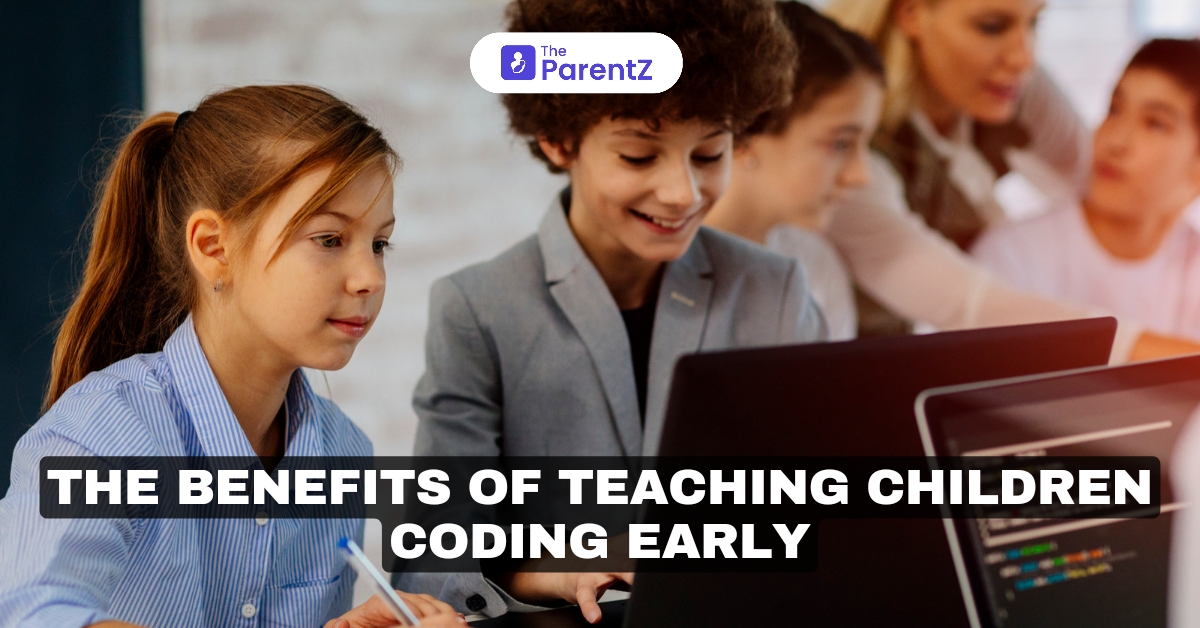In an increasingly digital world, coding has become more than just a technical skill—it's a fundamental literacy that helps children understand and shape the technology around them. Teaching children how to code early equips them with problem-solving abilities, enhances creativity, and prepares them for the future job market. But the benefits of coding go beyond career prospects; it plays a crucial role in cognitive development and helps build confidence. In this article, we explore why it's beneficial to introduce coding to children at an early age and how it can positively impact their overall development.
Cognitive Benefits of Early Coding Education
One of the most significant advantages of learning to code early is the positive impact on cognitive development. Coding challenges children to think critically and break down problems into smaller, manageable parts, a skill known as computational thinking. This type of thinking teaches them to approach complex problems systematically, making it easier to find solutions in various contexts.
- Improved Problem-Solving Skills: Coding involves solving puzzles and fixing bugs, which helps children enhance their problem-solving abilities. When children write code, they often face challenges that require them to think critically, test hypotheses, and experiment with solutions. These activities strengthen their logical reasoning and analytical skills, applicable not only in coding but in other academic subjects and real-life situations.
- Boosting Creativity: Contrary to popular belief, coding is a creative process. Children use code to create games, animations, or interactive stories, giving them the opportunity to express their ideas and bring them to life. The ability to create something from scratch fosters innovation and encourages kids to think outside the box. As they experiment with different approaches, they learn that failure is just a step toward success—a valuable life lesson.
- Enhancing Memory and Focus: Learning to code helps improve memory retention and focus. When children code, they must remember specific syntax and structure, which exercises their short-term memory. Additionally, completing a coding project requires sustained attention, helping children develop the focus they need for other educational pursuits.
Preparing Children for the Future Job Market
As the world becomes more digitized, coding is becoming an essential skill across various industries. Jobs in sectors like finance, healthcare, marketing, and even entertainment increasingly require an understanding of programming. Teaching children coding early gives them a competitive edge and opens up a wide range of future career opportunities.
- Future-Proofing Their Skills: As automation and artificial intelligence continue to grow, many traditional jobs are being transformed. Coding is one of the few skills that not only remains relevant but becomes increasingly in demand. By learning to code at an early age, children are better prepared for a tech-centric job market, where coding knowledge can give them a head start.
- Broadening Career Opportunities: Coding is not limited to becoming a software developer or engineer. The ability to write and understand code is relevant in nearly every industry. Whether it's in data analysis, cybersecurity, web development, or game design, having coding skills opens up a wide array of career paths. Early exposure to coding can also help children discover interests in specific fields like robotics, artificial intelligence, or bioinformatics.
Building Collaborative and Communication Skills
While coding might seem like a solitary activity, it is often done in teams. Collaborative coding environments encourage children to work together, discuss solutions, and share ideas. This fosters both teamwork and communication skills, which are essential in both school and future workplaces.
- Promoting Teamwork through Coding: In coding clubs or classroom settings, children often work together on coding projects. Whether it's debugging code or creating a group project, coding encourages collaboration. By working as a team, children learn the importance of listening to others' ideas, giving and receiving feedback, and contributing to a common goal.
- Developing Communication Skills: Explaining how code works to peers or teachers helps children improve their communication skills. They learn to articulate their thoughts clearly, break down complex ideas, and present their solutions in an understandable way. This not only strengthens their ability to explain technical concepts but also enhances their overall communication abilities.
Coding Teaches Persistence and Resilience
One of the most valuable life lessons coding teaches is persistence. Coding projects rarely work perfectly on the first try, and children often encounter errors, known as bugs. Learning to debug their code teaches them not to give up when faced with failure, a crucial skill in any life endeavor.
- Developing a Growth Mindset: Coding helps children embrace failure as part of the learning process. Each error presents an opportunity to learn and improve. Over time, children develop resilience, knowing that perseverance will eventually lead to success. This growth mindset—the belief that abilities can be developed through dedication and hard work—can be applied to all areas of life.
- Building Confidence: Completing a coding project or solving a complex problem boosts a child’s confidence. The sense of accomplishment that comes from creating something on their own motivates them to tackle more challenging projects. As their skills grow, so does their confidence, which can have a positive impact on their self-esteem.
Fun and Engaging Coding Tools for Kids
Coding doesn’t have to be daunting. There are plenty of child-friendly platforms that make learning to code both fun and engaging. These tools are designed to teach coding through games, puzzles, and interactive projects, making it accessible even for young children.
- Visual Programming Languages: Platforms like Scratch and Blockly are perfect for beginners. These visual programming languages allow children to create programs by dragging and dropping code blocks, making coding intuitive and less intimidating.
- Coding Apps and Games: There are also coding apps such as Tynker and Hopscotch, which gamify the learning experience. Children can solve coding puzzles, design their own games, or even program robots. These apps make coding a fun and rewarding activity that kids can enjoy while learning valuable skills.
- Coding Toys and Kits: For hands-on learners, coding kits like LEGO Mindstorms and Osmo Coding allow children to build robots and program them to perform specific tasks. These interactive toys make coding tangible and inspire curiosity in STEM fields.
Conclusion
Introducing coding to children at an early age offers a wealth of benefits, from cognitive development and problem-solving skills to creativity and future job readiness. Coding teaches persistence, collaboration, and communication, which are essential life skills beyond the digital realm. With the rise of coding tools and platforms designed specifically for kids, learning to code is now more accessible than ever. By nurturing these skills early on, parents are not only preparing their children for the future but also empowering them to become creators in an increasingly technological world.





Be the first one to comment on this story.